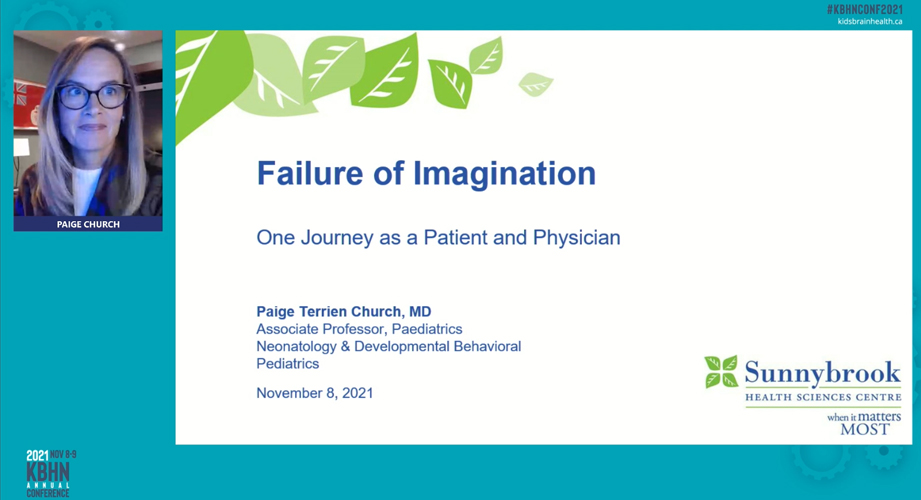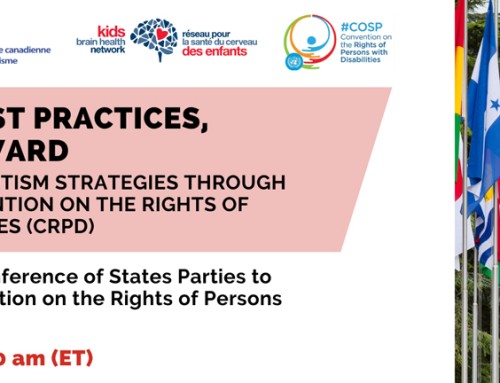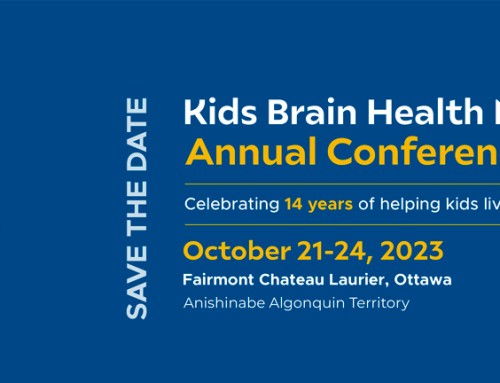This year’s Fraser Mustard Lecture Speaker and award recipient was Dr. Paige Church. This decorated researcher-clinician truly embodies Dr. Mustard’s belief in patient-first care. Our conference attendees had the pleasure of attending her talk “Failure of Imagination: Ableism in Medicine”.
If you Google Dr. Paige Church, you will find many links depicting her as a force to be reckoned with. She is affiliated with two major hospitals in Toronto, acting as both the Medical Director of the Neonatal Follow-Up Clinic at Sunnybrook Health Sciences Center and a Neonatologist at Holland Bloorview Kids Rehabilitation Hospital. Recently, she was recognized as one of Canada’s Most Powerful Women. And, if you dig deep enough, you will learn that she has spina bifida – a neurodevelopmental disorder that occurs when the neural tube does not close all the way.
Like many of her patients, she grew up with and continues to be afflicted by this condition. Like her patients, she was in and out of the hospital as a child. However, unlike her patients, she had a parent who was a doctor, and this allowed her access to better care and a better prognosis. She realized that not everyone was so lucky.
Thus, her passion lies in how our healthcare systems work and how patients with disabilities are treated. Her research is focused on identifying the gaps and figuring out ways to make systems better for everyone. For example, she wants us to realize that the words we speak can shape realities. She has heard many coworkers say to their patients’ families: “I have some bad news – your child has cerebral palsy”, and then list all the things their child will never be able to do. This links the word “bad” with “cerebral palsy” and sets the family up for believing in failure, instead of motivating them to see the magic in all their child can do. Dr. Church refers to this problematic tendency as the “air of ableism”.
Not only does the air of ableism in medicine negatively impact patients, but healthcare professionals can suffer as well. The “Superman Complex” creates an intolerance in medicine – not only are these employees under severe stress to perform, sometimes working 40-hour shifts on 4 hours of sleep, but they also feel like they cannot disclose their own medical conditions. Patients with disabilities are often looked down upon, and so doctors with afflictions are afraid they will be seen as “less capable” as well. For Dr. Church, who hid her diagnosis for much of her career, this was especially difficult and demoralizing.
Dr. Church came to the conference with this statement front and center: “The air of medicine can be ableist, and we need to change this so that there is space for everyone to thrive within the system”, and we believe her talk resonated with all attendees present.
Outside of her professional life, Dr. Church is a “wife, mother, sister, daughter, mentor, and friend” (JAMA, 2017), who enjoys going on walks with her dogs and listening to Michelle Obama’s e-book “Becoming”.
Written by Ariana Cahn








